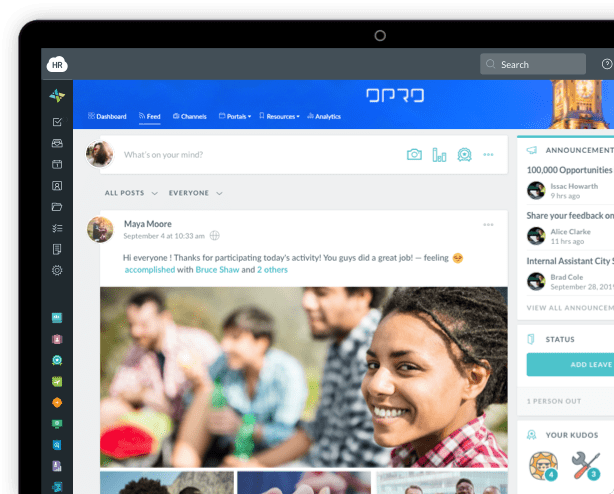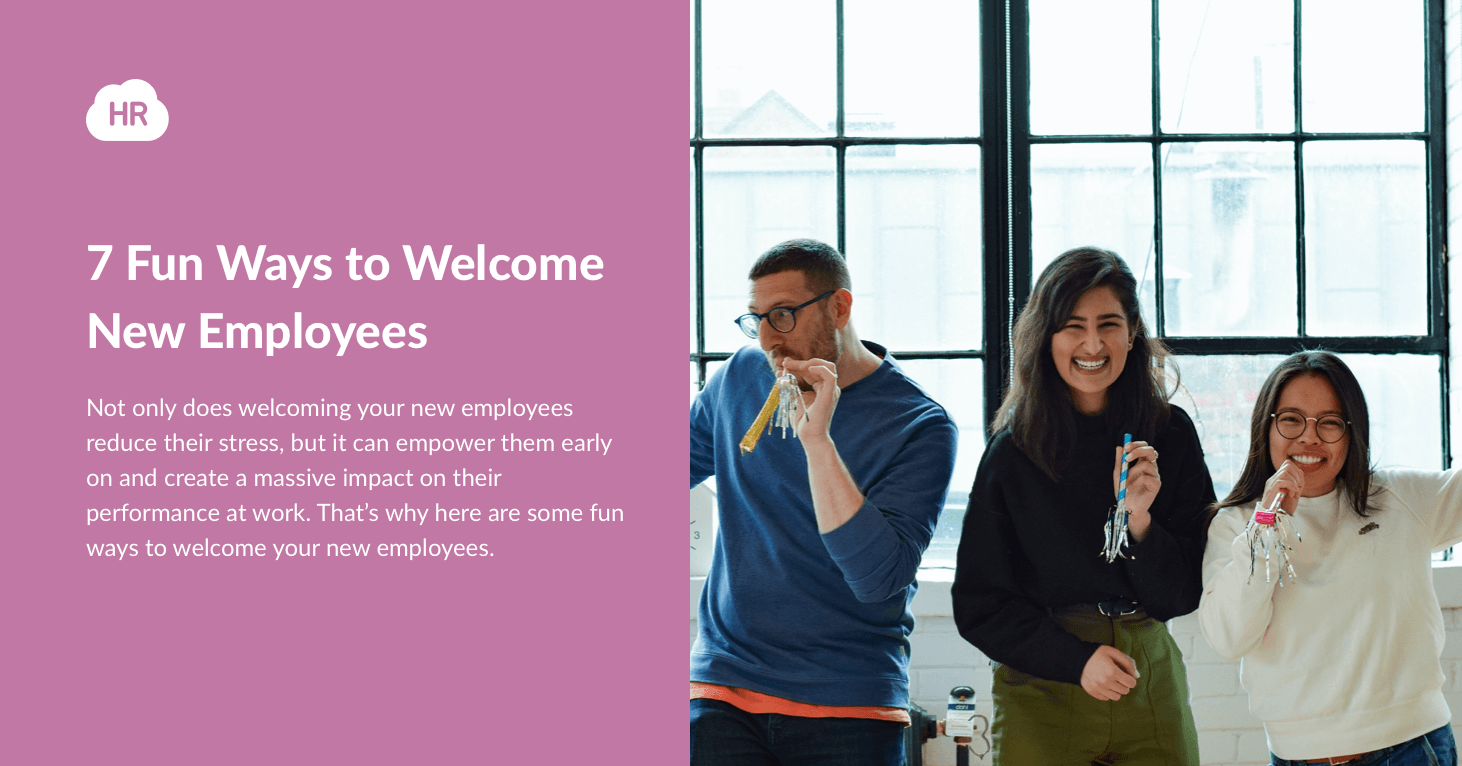Leading people isn’t a piece of cake, but it becomes another battle if they lack morale. As the business world pace to leverage technology in order to get things done, business owners have also realized the impact of technology on employee engagement! Welcome to our blog and we hope you find actionable insights on how technology can power employee engagement in your organization.
Technology today has become the center of focus when it comes to getting things done effectively. You will find many studies today that focus on the impact of technology on employee engagement. If you want to make use of technology in your organization, you must also think of the people who will use it.
Employee engagement merely refers to the level of commitment and enthusiasm an employee feels towards their job in an organization. The way your employees feel about their jobs and responsibilities influences the overall performance of your organization. Highly engaged workers will drive themselves to accomplish tasks without supervision or monitoring. There will also be a high level of collaboration, job satisfaction, and productivity. A Gallup report indicates that a highly engaged workforce can increase profitability by 21%.
On the other hand, disengaged employees will take more time to accomplish tasks, there will be a high turnover, the company will spend more on recruiting, and lastly, poor customer experience. Also, according to the latest stats published by Gallup, only 36% of employees are engaged in workplaces, and over 50% are totally disengaged. Certainly, employee engagement statistics indicate that organizations need to look for novel strategies to drive engagement. Now let’s dive into the most prominent ways technology can increase employee engagement.
The 7 Ways Modern Technology Can Drive Higher Employee Engagement
1.The Right Digital Tools Simplify Tasks
Most jobs today involve repetitive tasks and multitasking. Although employees may already be used to executing their tasks, providing the right digital tools can improve effectiveness, productivity, and overall engagement. Fortunately enough, many employees are willing to adopt these technologies for their own good.
You ought to know that there is a range of AI-powered tools or business automation software that can enhance employee engagement. For example, project management tools offer autonomy in how employees allocate and spend their time. Also, task management platforms ensure proper communication between members and can help accomplish tasks within the required period of time.
Today, digital tools have also made remote work possible as managers can communicate with their employees anytime and anywhere. 70% of HR professionals stress that employees perform faster if they are allowed to use their mobile phones instead of computers. Most especially millennials. If you want to introduce any digital tool in your organization, make sure that it’s easy to use and effective. If it’s necessary to first offer training to your workforce, then do it.
Many organizations have embraced modern tools to enable clear-goal setting, acquisition, and utilization of data. Some of the commonest workplace digital tools you can consider include Asana, Huler, Slack, and QuizBreaker among others.
2. Gamification enhances Learning Experiences
Gamification is a technique that gained popularity a few years ago and it’s amazing how several business players have welcomed this technique to amplify workplace experiences. The concept of gamification earns applause from the fact that it can make job processes more like playing a game. A TalentLMS survey confirmed that about 80% of corporates and students stress that they would be more productive if their working environment felt more like playing a game.
On the other hand, gamification makes training more enjoyable. It rises from the fact that human beings are naturally competitive. A study by TalentLMS in 2019 found that 33% of employees prefer to have game-like effects in their training platforms. That’s because traditional training methods seem boring and don’t offer the same amount of satisfaction.
Studies also show that organizations that use gamification can maximize their sales, enhances employee social networks, and optimize employee engagement at the same time. So, if you are willing to leverage technology during employee training, simply know that you’re making an ideal move. With mobile learning and gamification, you can make a significant difference in terms of employee engagement.
3. Performance Management Software & Goal Setting
Communication is key to boosting employee engagement whether between departments or with managers. However, face-to-face communication may not always be the answer. Modern technology has enabled organizations to streamline employee tasks and performance effectively. The same tools have also allowed HR professionals to update employee information, assess employee performance, and set smart goals.
A range of performance management tools can be used to access and manage data during decision-making. The utilization of performance management software does not only help in acquiring data for goal setting, but it can also empower managers. After all, goal setting is the key to business success in the long run.

4. Collaboration Tools for Remote Working
Collaboration in the past meant being in the same room and working together to accomplish a task. Not anymore! The business world has greatly diversified to the extent that many companies have realized the benefits of outsourcing and remote working. Today there is a range of software and tools that teams can use to collaborate timely regardless of the time and location.
Effective collaboration in a workplace is vital if you want to get things done properly. As per McKinsey, 80% of modern businesses utilize social collaboration tools to enhance business processes. The use of collaboration tools can improve project management, strengthen team relationships, prevent time wastage, and encourage feedback.
With all this, employees can stay engaged and aligned with the company’s goals. With the right collaboration tools in place, your workforce can work remotely, in-house, or adopt a hybrid work culture and still perform excellently. Also, you can foster greater collaboration using social media and Google Drive.
5. Technology Facilitates Work-Life Balance
When employees are invested and happy with their jobs, their level of engagement increases. However, you will find that many employees today lack purpose, and are totally disengaged from their jobs. This may be triggered by a personal problem, workplace issues, or lack of motivation.
With the use of AI (artificial intelligence) and collaboration tools, employees can become highly engaged since these technologies simplify tasks. Technology today allows efficiency, increases flexibility, and allows employees to work within the allocated time. Many employees get stressed when they are asked to work overtime or on days they prefer to get quality rest. So with the help of project management tools, collaboration software, and gamification during training, all this can improve a workforce’s work-life balance.
6. Digital Reward System
If employees used to only work for their paychecks traditionally, not anymore. Employees today want to feel like you value their efforts and they expect you to recognize them or offer rewards in real-time. Also, post the pandemic, many organizations have employees that work remotely. So how do you ensure inclusivity?
Virtual rewards are gaining popularity as they can be personalized and suitable for all types of employees whether in-house or remote workers. For any organization, you will find that many of your employees subscribe to streaming platforms or services. A digital reward system in place that includes gift cards, online movie/music subscriptions, or virtual courses can help keep your employees highly engaged.
7. Eliminates Biasness
Diversification is everywhere and you will find that many organizations employ people from all walks of life. These people will have different opinions about the same matter, different work capabilities, and certainly different opinions about the work culture. With this, you might find that you’re constantly witnessing cases of discrimination, favoritism, and other ethical issues. It is true that any engaged employee can feel a sudden dip in motivation when discrimination becomes a workplace virtue. To improve your workplace environment, technology might be the answer in some cases.
For example, in case some employees claim to overwork or to handle more responsibilities than others, performance management tools can be an ideal solution. It’s because these tools centralize information, and tasks and allow access to all authorized personnel. In this way, you will be able to track performance, get accurate feedback, and reward employees accordingly.
To encapsulate, technology advancement is still influencing the business sphere in many ways. If you’re only leveraging technologies to improve customer experiences, it’s high time you utilize the same for employee engagement in your organization. A high employee engagement will ensure better employee productivity, minimized resource wastage, and steady business growth. More so, your employees will stay engaged which will improve employee retention.
About Author:
This article is written by our marketing team at HR Cloud. HR Cloud is dedicated to providing powerful solutions for your HR teams and creating an exceptional employee experience. Our aim is to help your company improve employee engagement, onboarding, and to save you valuable time!
Keep Reading
Balancing Technology and the Human Touch in Employee Engagement
Companies are taking employee engagement very seriously because it is one of the ways of
Building Strong Teams: The Power of Team Bonding Exercises
Never overestimate the power of collaboration as a core element of effective team




